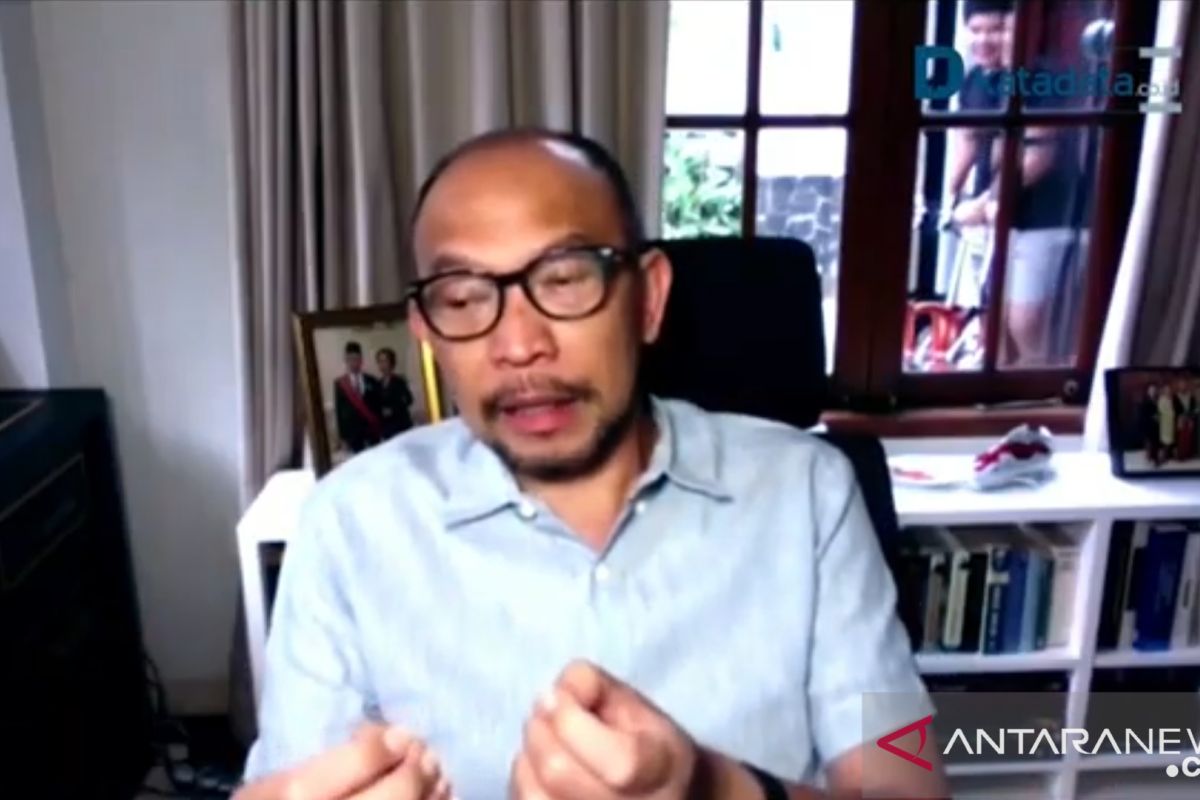
Economist projects Indonesia's economic recovery to start in 2022

"After the pandemic is overcome and activities have begun to return to normal, we will speak about the recovery phase. Now, it is survival," Basri stated during a discussion to encourage investment during the pandemic in Jakarta, Monday.
Basri remarked that the current phase is survival from the impact of the coronavirus pandemic despite an improvement in economic growth from the second-quarter contraction of 5.32 percent to contracting 3.49 percent in the third quarter of 2020.
The economist affirmed that currently, it is considered as a period of survival, adding that business players will not yet expand their businesses in the wake of economic restrictions.
"For instance, at a restaurant only 50-percent occupancy is permitted. Hence, what is the point of expanding a new restaurant if the existing place is not full owing to restrictions," the former finance minister noted.
Basri remarked that when the economy begins recovering and returning to normal in 2022, new private investment is estimated to increase.
"If time is needed for vaccines in 2021, I am not sure if private investment will increase sharply in 2021 since the protocol is still in place. Investment increases when economic conditions start to normalize," former Investment Coordinating Board (BKPM) head noted.
Basri stated that the government played an important role in providing incentives to business players when investors start to enter once the economy begins to recover.
The economist affirmed that incentives are offered especially to business actors with green projects or conducting environment-based sustainable development.
"Here, the role of government intervention, for instance, fossil fuels can no longer be subsidized. If it continues to be subsidized, people will continue to consume fossil fuels. When oil prices are relatively low, it is time to remove subsidies, and the money can be channeled for health. It can be allocated to support the renewable sector,” Basri explained.
The Central Statistics Agency (BPS) earlier revealed that the Indonesian economy had contracted 3.49 percent (yoy) in the third quarter of 2020.
Thus, Indonesia officially fell into recession akin to that experienced by various countries battered by the COVID-19 pandemic since it had recorded negative growth for two consecutive quarters, BPS Head Suhariyanto stated at a press conference here on Thursday.
The BPS earlier also highlighted that the Indonesian economy contracted 5.32 percent yoy in the second quarter of 2020 owing to the COVID-19 pandemic having limited economic activities.
Despite experiencing negative growth, on a quarterly basis (qtq), Indonesia’s economy advanced 5.05 percent qoq in Q3 of 2020, which shows signs of significant recovery.
Meanwhile, on Nov 2, President Joko Widodo (Jokowi) had stated that economic growth in the third quarter of 2020 would lie around -3 percent, better than -5.32 percent recorded in the second quarter of 2020.
"Hence, during the third quarter, it may touch slightly over -3 percent, and that is an improving trend, a positive trend. This must be emphasized in the announcement of the BPS, from (minus) 5.32 percent (in the second quarter) to -3 percent," President Jokowi stated while opening a plenary cabinet meeting at the State Palace here on Monday.
The president noted that despite economic contraction in the third quarter of 2020, the recovery was already apparent. Economic growth in the third quarter will improve as compared to the second quarter of 2020 wherein it fell by 5.32 percent.
Hence, Jokowi has urged his staff to boost the realization of budget spending in the fourth quarter of 2020.
EDITED BY INE
Pewarta : Dewa Ketut, Azis Kurmala
Editor:
Achmad Zaenal M
COPYRIGHT © ANTARA 2025


